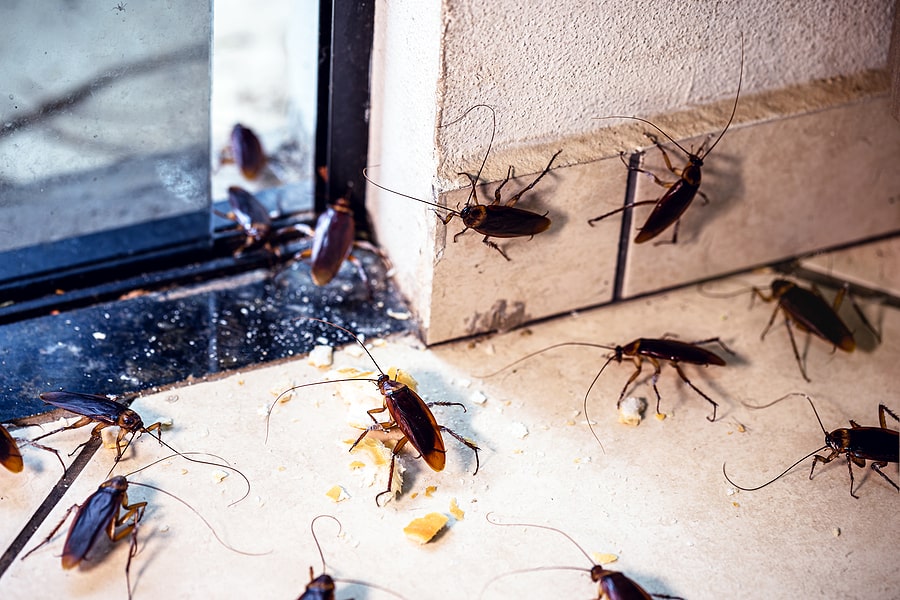Rapid and Reliable Roach Control Near Me for a Pest-Free Home
Checking Out Different Pest Control Techniques to Attain Long-Term Success in Handling and Preventing Problems in Residential Areas
Efficient parasite control in suburbs requires a diverse technique that stabilizes prompt outcomes with long-term sustainability. By taking a look at an array of methodologiesâEUR" including environment-friendly services, chemical options, and Integrated Bug Management (IPM) âEUR" house owners can create methods that not just attend to existing infestations however additionally avoid future incidents. This exploration exposes the possibility of cutting-edge practices and arising modern technologies that might redefine conventional parasite administration. What might these developments require, and just how can they transform our understanding of bug control?
Understanding Bug Control Approaches
Although pests have existed alongside people for centuries, the methods used to control them have progressed dramatically over time. Comprehending these methods is vital for properly taking care of and protecting against problems in household locations. Parasite control strategies can be extensively categorized right into 3 main strategies: social, mechanical, and chemical.
Cultural methods focus on modifying the environment to lower pest tourist attraction and reproduction. Mechanical control involves physical barriers and traps to manage parasites directly, such as screens, vacuums, and sticky catches.
Chemical control remains one of one of the most widely used techniques, including the application of pesticides to get rid of pests. While efficient, this approach necessitates careful consideration of security, prospective resistance growth, and ecological impact. Integrated Bug Monitoring (IPM) combines these methods to develop a holistic technique, promoting long-lasting pest prevention and very little injury to beneficial organisms. By understanding these different bug control approaches, property owners can make informed choices that promote effective monitoring and conservation of their space.
Eco-Friendly Parasite Control Solutions
Just how can homeowners properly take care of parasite problems while decreasing their ecological influence? Environmentally friendly bug control options supply a lasting option to typical approaches, prioritizing the wellness of both locals and the bordering ecological community. These remedies often utilize natural ingredients and techniques that interfere with bug actions without introducing hazardous chemicals into the environment.
One efficient method is the usage of valuable insects, such as ladybugs and lacewings, which take advantage of common parasites like aphids and termites. Furthermore, diatomaceous earth, an all-natural powder made from fossilized algae, can be sprayed in locations where parasites are widespread, acting as a desiccant that damages insects while continuing to be risk-free for humans and animals.
Furthermore, carrying out preventive actions is vital. roach control near me. Property owners can make sure correct hygiene by securing entry points, keeping tidy living rooms, and taking care of waste properly. Growing pest-repellent herbs, such as mint and basil, can likewise hinder unwanted visitors
Inevitably, green bug control solutions equip house owners to attend to infestations responsibly, fostering a safer living environment while advertising environmental balance. By accepting these approaches, people can add to a much healthier earth while properly managing pest-related concerns.
Chemical Parasite Control Options
While environment-friendly options are progressively preferred, there are situations where chemical pest control options may be necessary for efficient management of extreme infestations. Chemical controls, including pesticides, fungicides, and herbicides, are often utilized to rapidly minimize bug populaces and minimize damages to homes and yards.
These items can be identified into 2 primary classifications: synthetic chemicals and all-natural pesticides. Artificial chemicals, such as pyrethroids and neonicotinoids, are crafted to target specific parasites, providing quick knockdown effects. On the other hand, natural pesticides, derived from plant or mineral sources, may provide an extra eco-friendly choice while still delivering reliable outcomes.
Before using chemical bug control, it is crucial to perform a comprehensive assessment of the infestation and identify the specific insect involved. This makes certain that the selected chemical is both reliable and appropriate. Furthermore, property owners have to abide by safety guidelines, consisting of correct application techniques and individual safety devices, to decrease health risks and environmental impact.
Integrated Pest Monitoring Techniques

Biological control includes the use of natural predators or parasites to take care of bug populations. Physical controls, like catches or obstacles, can stop insects from getting in homes or damaging plants.
Surveillance and evaluation are essential elements of IPM, permitting timely treatments based on pest populace thresholds. By focusing on preventative procedures and utilizing a mix of tactics, IPM not only addresses existing infestations yet also cultivates why not check here long-term insect management services that safeguard both human health and wellness and the environment. This thorough technique is vital for lasting pest control in houses.
Emerging Technologies in Insect Control
The arrival of emerging technologies in pest control is changing the means we take care of pest populaces, offering cutting-edge remedies that enhance performance and effectiveness. Developments in accuracy farming, as an example, use data analytics and sensing unit innovations to check insect activity and ecological problems, allowing for targeted interventions that lessen pesticide usage.
In addition, drones outfitted with imaging modern technology are being employed to evaluate big locations for invasions, providing real-time information that help in timely decision-making. Furthermore, biotechnology is playing an essential role, with the advancement of genetically changed organisms (GMOs) designed to lower insect populaces while protecting valuable varieties.

Lastly, smart catches and keeping track of devices furnished with IoT capacities make it possible for property owners and insect control professionals to receive immediate alerts concerning parasite activity, facilitating prompt action. Collectively, these arising innovations not just boost insect monitoring results yet also contribute to environmental sustainability by decreasing dependence on standard chemical treatments.

Verdict
To conclude, efficient bug control demands a diverse method that includes cultural, mechanical, and chemical strategies. Highlighting eco-friendly solutions and Integrated Insect Management can cause lasting practices that not only reduce invasions but likewise improve the environmental equilibrium within houses. By welcoming cutting-edge innovations and taking on safety nets, property owners can cultivate healthier settings while lessening dependence on dangerous chemicals. The combination of these methods is crucial for achieving long-lasting success in parasite monitoring.